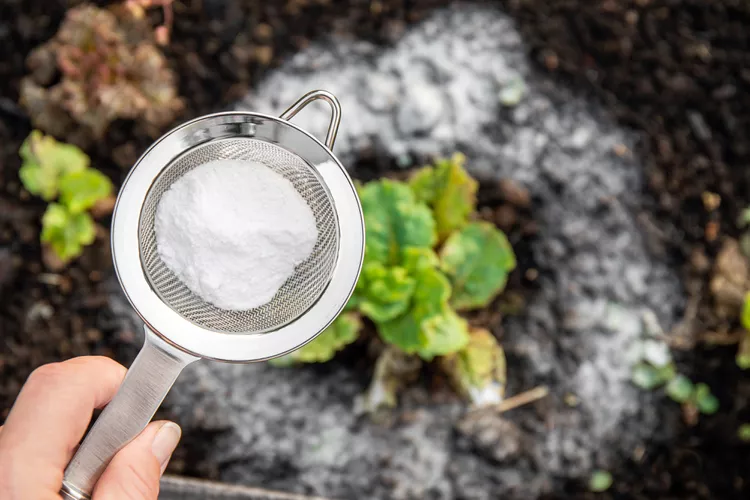Baking Soda for Plants? Here’s Why That’s Not a Good Idea

Baking soda can work wonders around the house and kitchen, such as adding airiness to a quick bread recipe, tenderizing meat, or freshening laundry. But baking soda for plants in your garden can do more harm than good, despite the claims you may have come across on social media. Here's why, and what to use instead to help your garden thrive.
What Is Baking Soda?
Sodium bicarbonate, aka baking soda, is essentially a salt with a wide range of uses, including baking, odor elimination, and cleaning. Naturally gritty, slightly alkaline, and relatively safe for consumption in small amounts, baking soda is also touted as a natural alternative ingredient for many garden remedies.
Baking soda is manufactured from sodium carbonate (soda ash) and mined from the ground in the form of nahcolite or trona. Both minerals occur in large deposits throughout the world, with the largest known deposits located in the state of Wyoming.
Why Do People Use Baking Soda for Plants?
Baking soda’s supposed anti-fungal properties have been spread around for many years as a natural home remedy to treat fungal infections, including black spot, powdery mildew, and a multitude of other fungi. When applied to plant leaves and stems, baking soda does slow or stop the growth of fungi. However, the benefits are fleeting at best.
Studies have shown that while baking soda impacts the growth of fungal spores, the spores and actively growing fungi are not killed. This is because baking soda acts on fungi by raising the pH around the plant, creating a more alkaline, somewhat inhospitable environment where fungal spores are unable to continue to grow. However, once the baking soda is washed off the plant, the pH levels return to normal, necessitating additional applications to keep fungal growth in check.
Other claims around using baking soda for plants and gardens include boosting blooms, killing weeds, and controlling insect pests. None of these are scientifically backed and aren't effective ways of achieving any of these aims.
The Risks of Using Baking Soda for Plants
While stopping the growth of fungal spores might sound like a great idea on the surface, let's take a deeper look into using baking social in your garden.
Baking soda is a salt, and all salts—along with other minerals in excess—can be detrimental to plant growth. Salt acts as a desiccant on plants and causes wilted foliage, stunted growth, and eventually, death. Healthy plants can quickly go downhill from an excess of salts. And if you've ever seen what happens to plants in the path of de-icing salt applied in winter, you know just how detrimental high salt levels can be to plants.
Another issue with baking soda is that it can dramatically change the pH of the soil. Most plants have a preferred soil pH range in which they grow. Outside of their preferred range, they begin to have trouble absorbing certain key nutrients such as phosphorus properly and can become nutrient deficient even when fertilizer is added.
Alternatives to Baking Soda
While baking soda might be touted as a safer alternative to other fungicides, it doesn’t eradicate fungal spores and has the potential to alter soil pH levels negatively. Instead of using baking soda, check out these organic alternatives.
Neem Oil
Neem oil is extracted from the neem tree native to the Old World. It works as an organic pesticide and miticide, and is an excellent fungicide. Use neem oil to treat a range of fungal infections, including powdery mildew, black spot, and rust, to name a few. Neem oil is typically mixed with water and sprayed liberally onto the leaves and stems of plants. Neem can be used on most plants and is best applied after sunset or otherwise out of direct sunlight to avoid burning plants.
Copper Spray
While copper is essential in small quantities, concentrated copper sprays fight fungal infections by destroying fungal cells on contact. Use a copper spray to prevent the spread of fungi—especially while plants are dormant. For example, copper sprays are commonly used on dormant roses and fruit trees to prevent future outbreaks.